"Journalists must not abandon their critical role, regardless of their affinities".
A brief retrospective CLIMACT's Science-Media event.
Posted on Jun 20, 2023Author(s)
Aïcha Besser
Communications Manager
CLIMACT
Expert(s)
Dr Nicolas Tetreault
Executive director
CLIMACT
Prof. Oriane Sarrasin
SSP, UNIL
After meeting the politicians of the canton of Vaud as well as the industry in French-speaking Switzerland, the focus this time was on the key players who shape information. For some, the evening was an opportunity to put faces to the people who document our daily lives through the print and broadcast media, while for others it was a chance to connect with scientific researchers who are still all too often perceived as being locked away in their ivory towers.
The event took place in an unusual and colorful venue: the Gotham coworking space, privatized and fitted out especially for the occasion.
To introduce the evening, Philippe Gagnebin and Gaël Hürlimann, Directors of Communications at UNIL and EPFL, took the floor to discuss the fundamental issues involved in a possible collaboration between science and the media. How appropriate is it? Is it really the media's role and responsibility to provide information with the objective of bringing about changes in behavior? Does the climate justify greater journalistic commitment? Philippe Gagnebin highlighted a partial mismatch between the expectations of academics and journalists' perception of their own role.
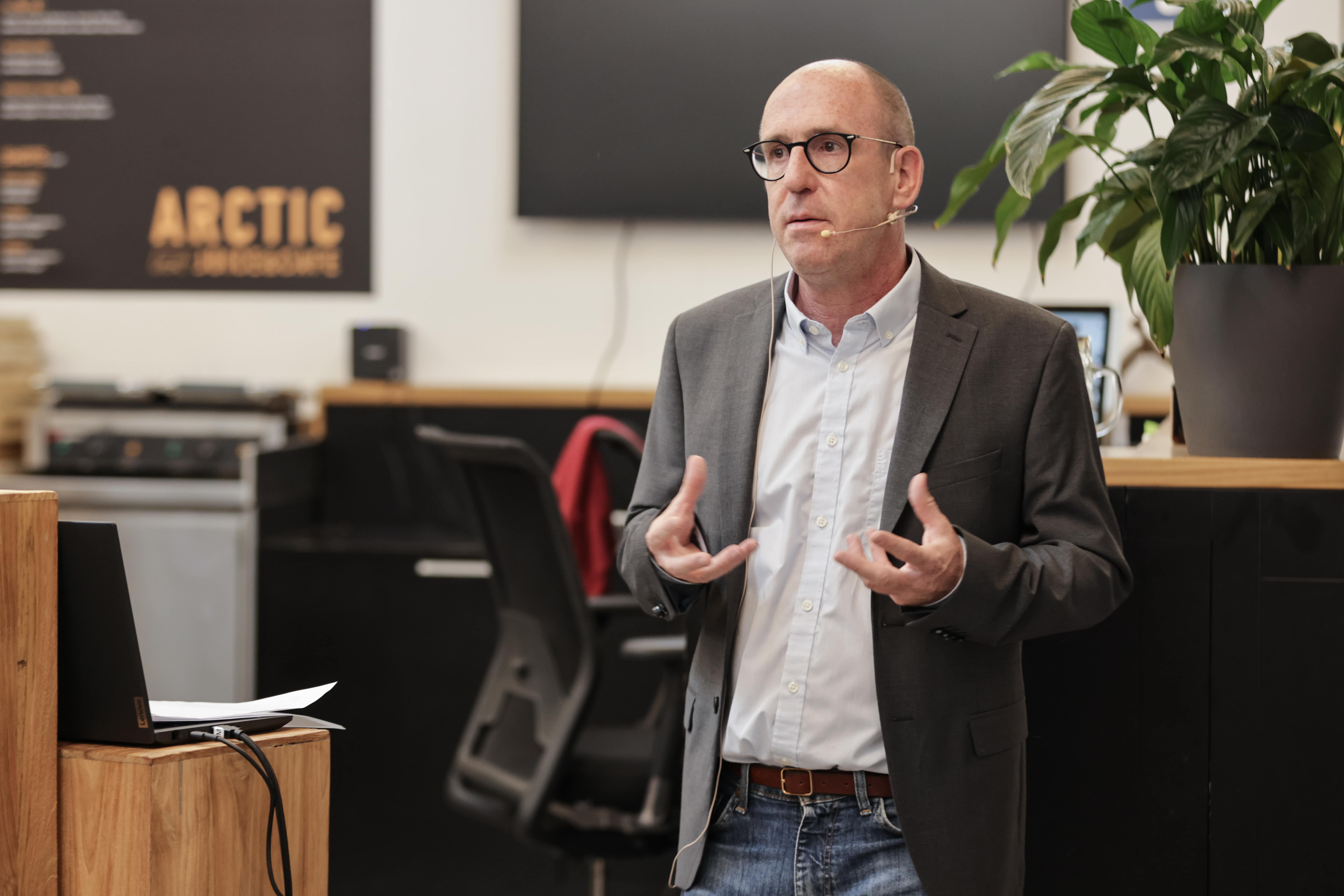
Philippe Gagnebin, Communications Director, UNIL
Gaël Hürlimann added that, although collaboration is welcome, journalists must not abandon their critical role, regardless of their affinities. He also stressed the importance of communicating clearly to society if such collaboration exists, to avoid exposing ourselves to criticism.
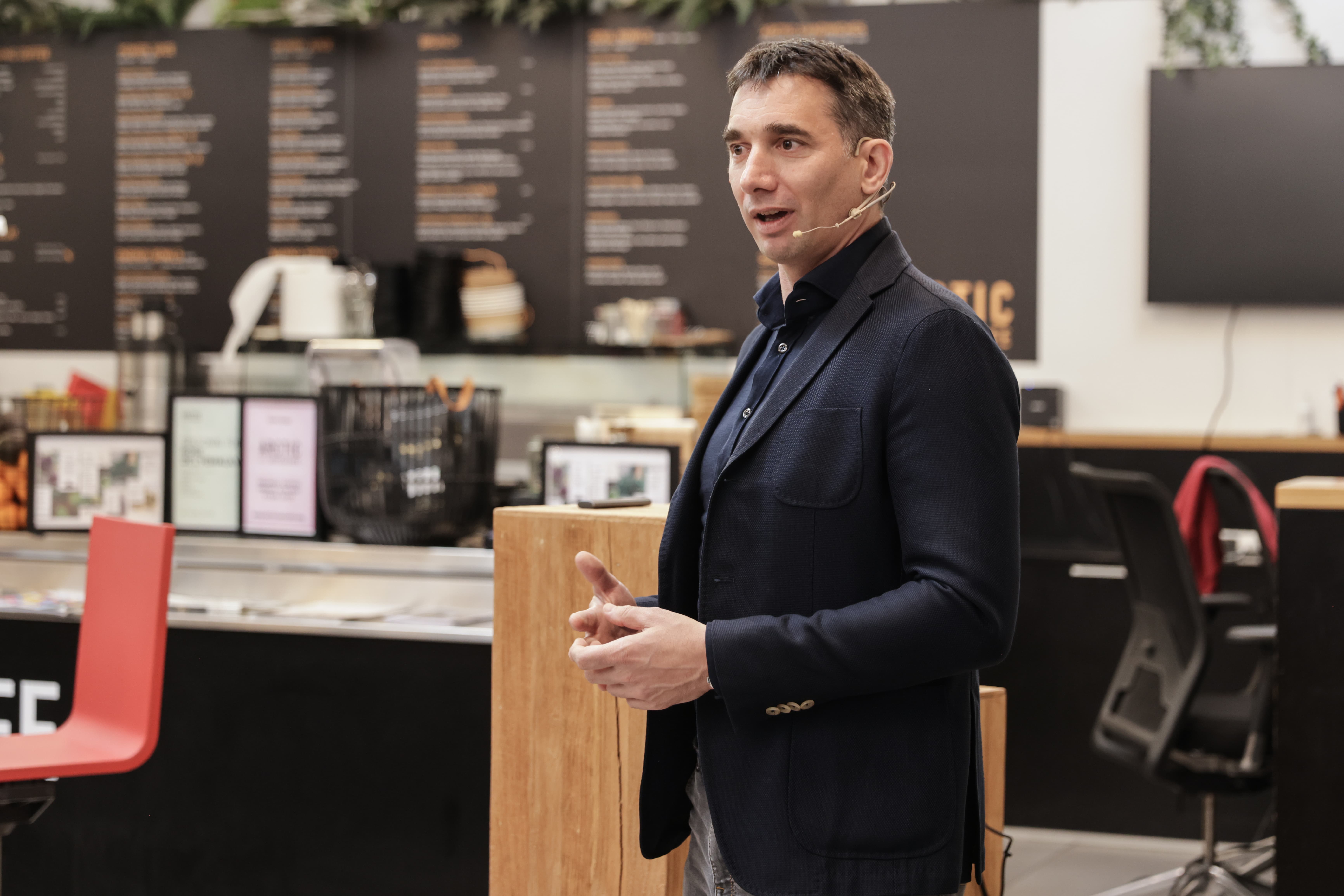
Gaël Hürlimann, Communications Director, EPFL
To take a closer look at the current situation, two speakers from UNIL shared the results of recent studies. Oriane Sarrasin, lecturer and researcher in environmental psychology, presented the findings of her study on the impact of climate-related media coverage on citizens' desire to take action.
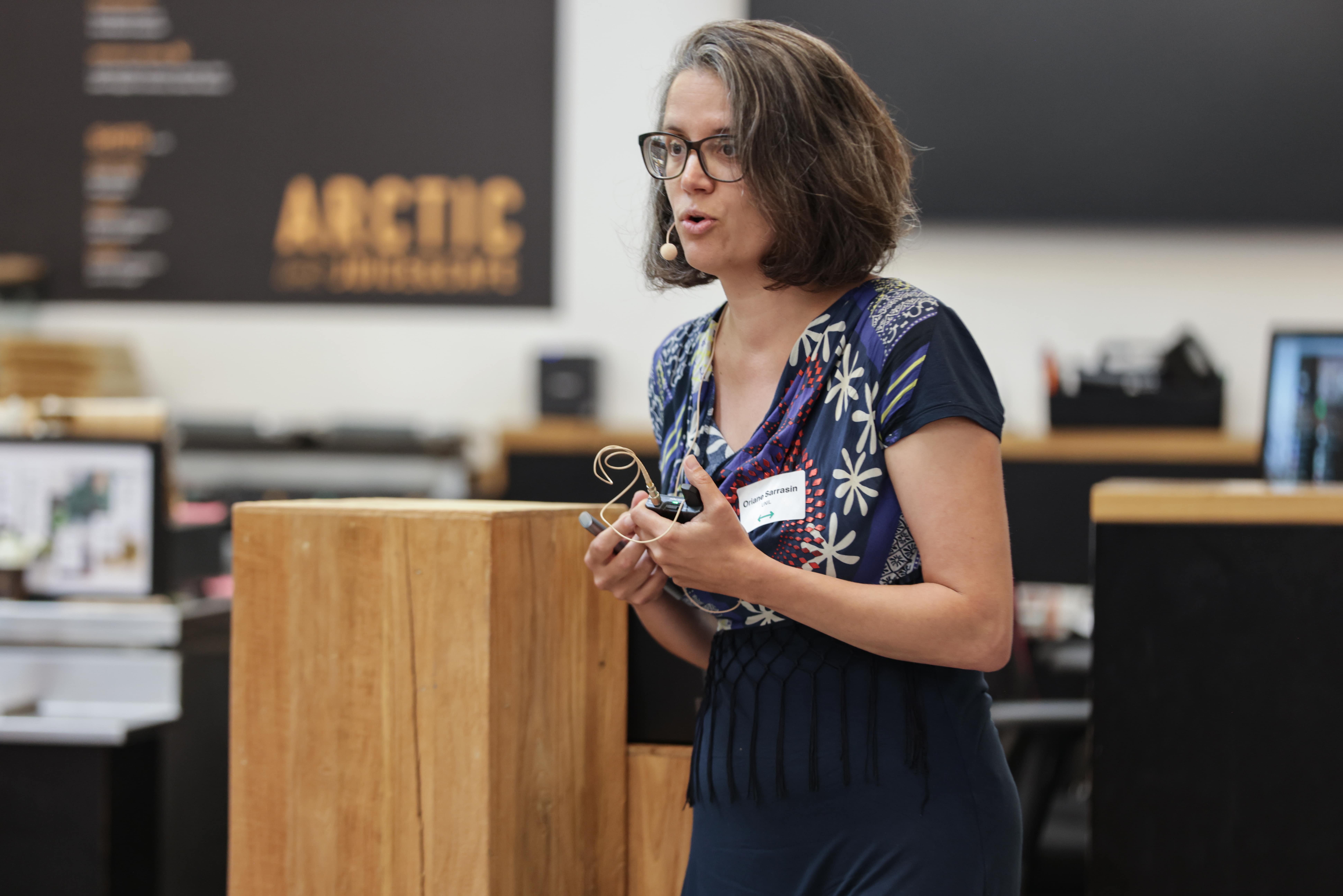
Oriane Sarrasin, Lecturer and researcher in environmental psychology, UNIL
Prof. Julia Steinberger, Professor of Ecological Economics, discussed the history of misinformation and the instrumentalization of scientific discourse.
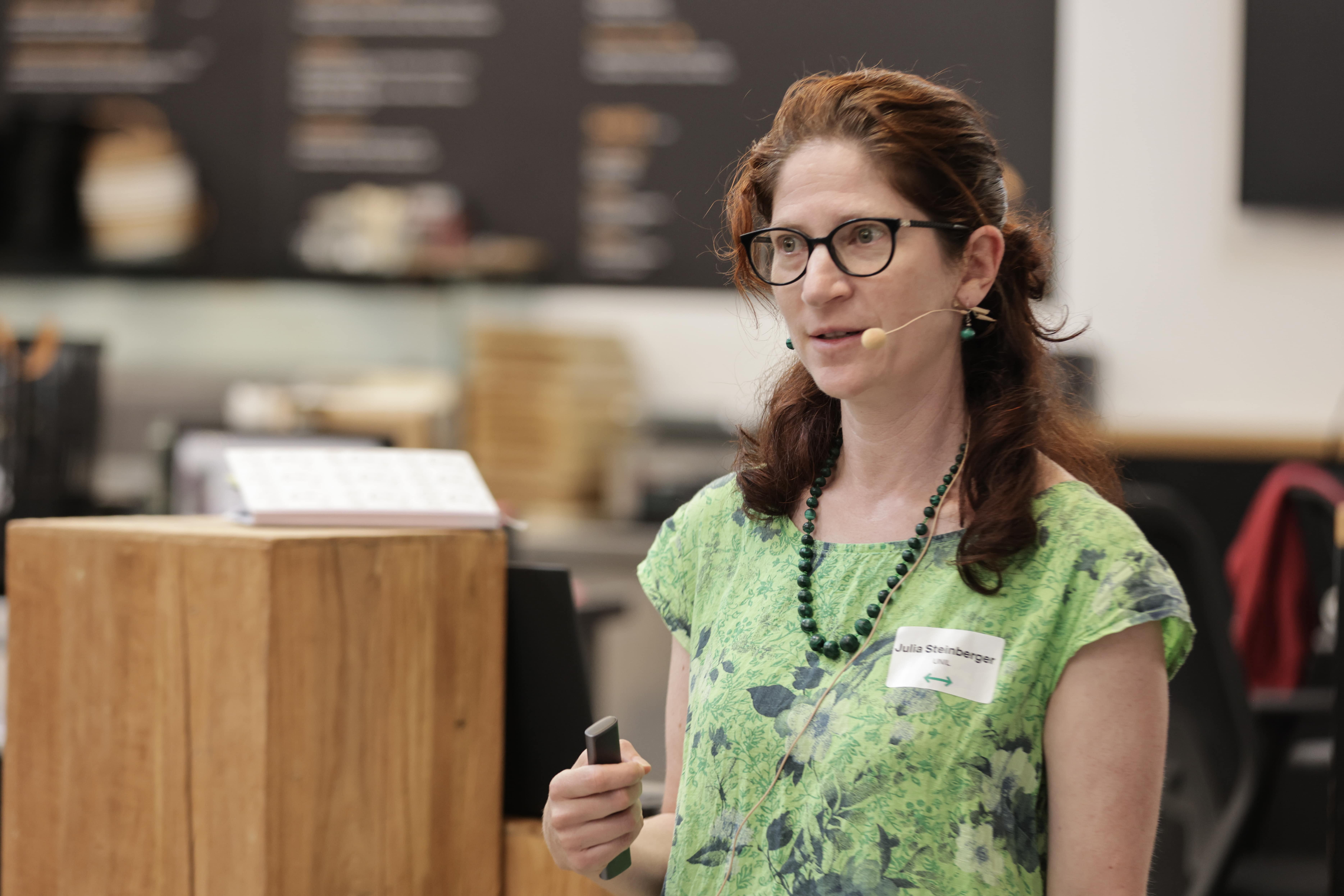
Julia Steinberger, Professor of Ecological Economics, UNIL
The focus then turned to TV newsrooms. Marion Faliu, deputy editor-in-chief of current affairs at RTS, shared the current thinking in editorial departments on integrating climate issues. She asserted that it is no longer acceptable to present cheerful swimming scenes to illustrate high temperatures.
She added that RTS has taken a clear stance: climate is not an opinion, which makes it unnecessary today to create false balances by opposing a scientist to a climate sceptic, for example. On the other hand, RTS does not wish to become militant, and therefore adheres to its code of ethics.
She concluded by emphasizing:
Our formats are very short. One and a half minutes is normal; two minutes is almost considered a long format, and when there's a guest, we have two and a half minutes. You're into nuance, into the long haul, whereas we're into popularization.
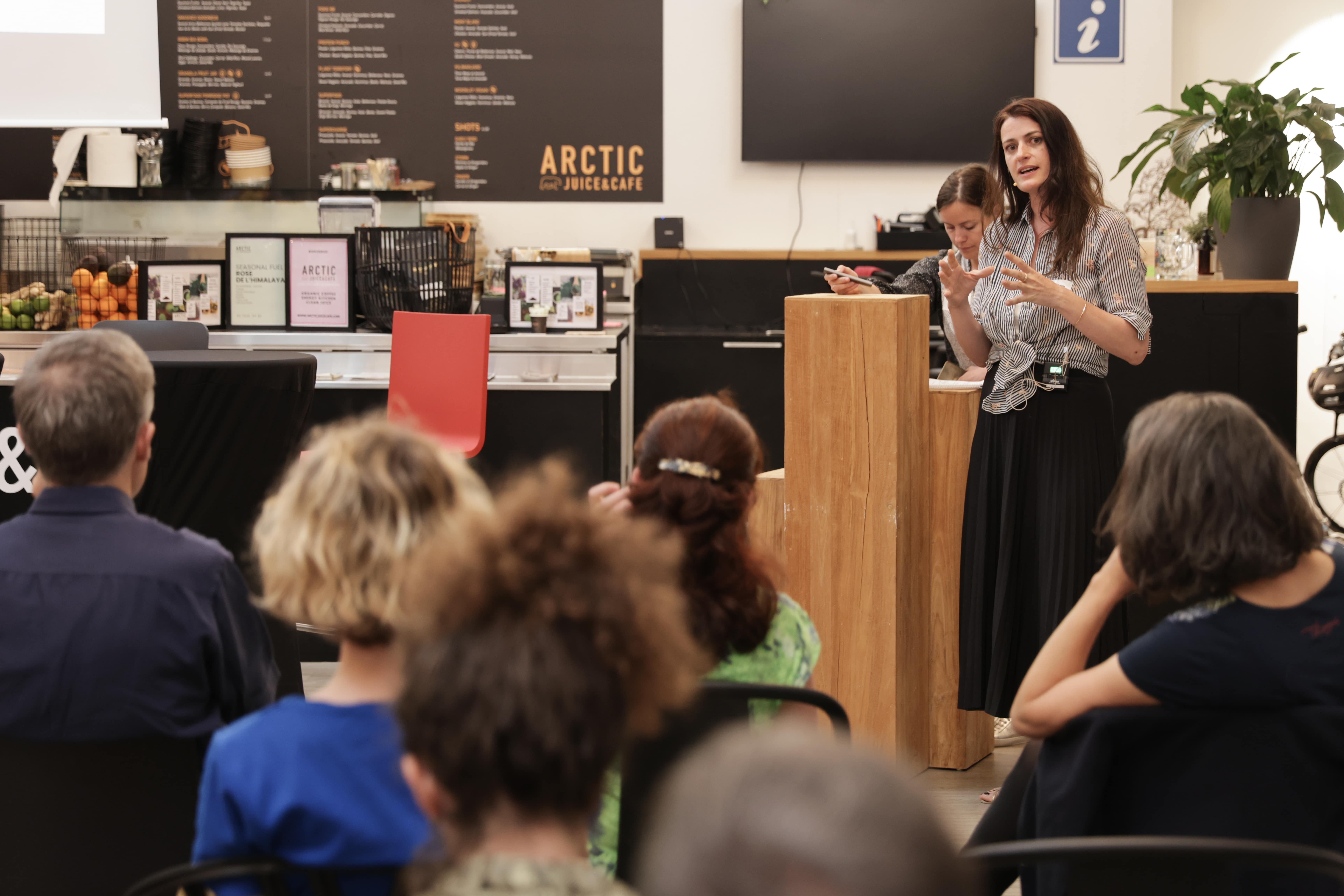
Marion Faliu, Deputy editor-in-chief of current affairs, RTS
Before the panel discussion got started, the two event partners, Nous Prod and IMI (Initiative for Media Innonvation), discussed possible solutions. Jonas Schneiter, Director of Nous Prod, presented the Co2séquence project, which aims to popularize scientific knowledge on climate change through collaboration between youtubers and scientists. He pointed out that the project had already generated 2 million views, demonstrating its massive impact.
A Youtuber is a medium. For me, there is no difference between a Youtuber with millions of subscribers and the RTS which reaches hundreds of thousands of people in French-speaking Switzerland.
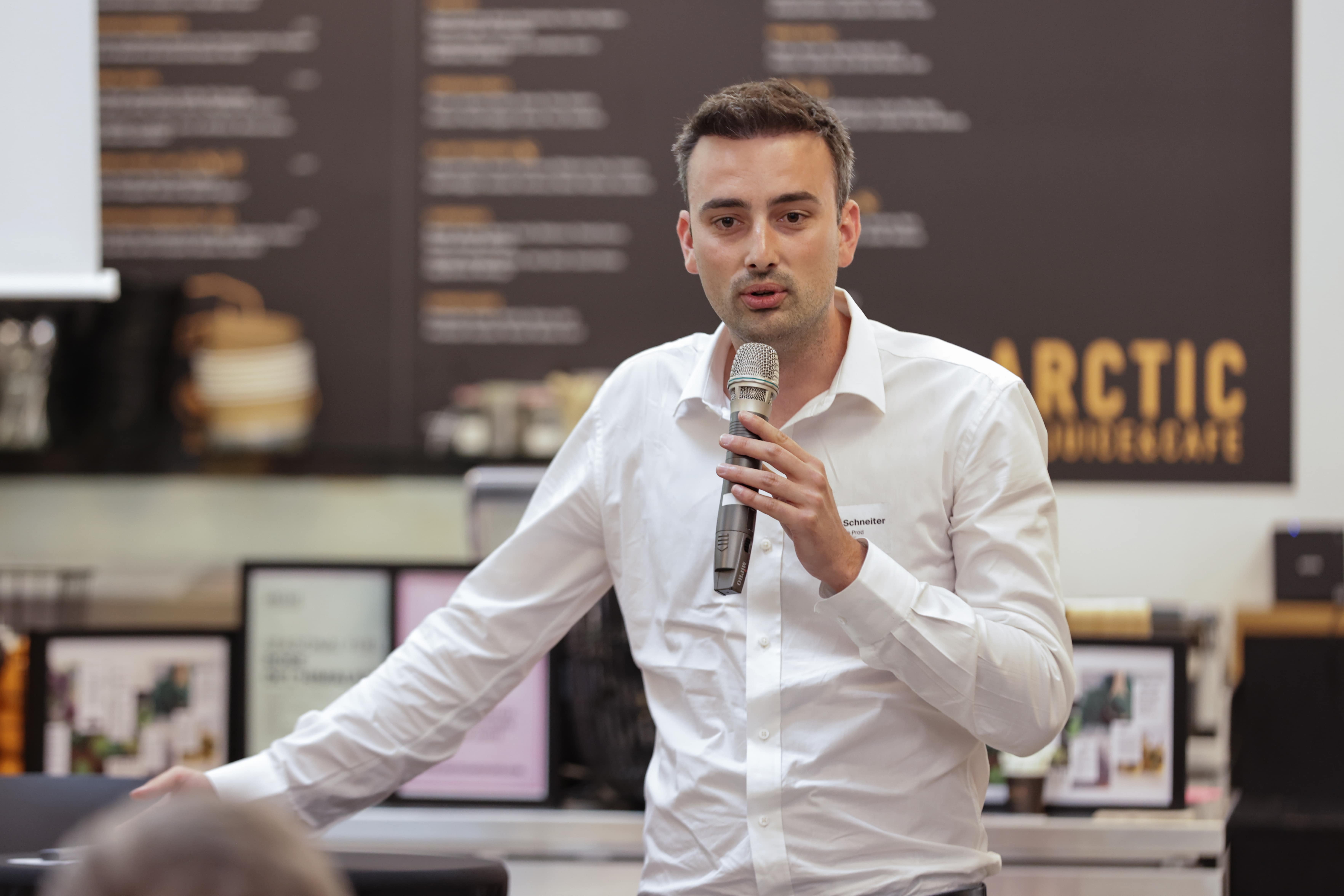
Jonas Schneiter, Director, Nous Prod
Mounir Krichane, Director of IMI, presented tools and collaborations developed within his center to support the digital transition of media. Among these, two collaborative projects stood out: one focuses on data journalism and data visualization, and the other, the "compascience" tool, which facilitates the identification of qualified experts.
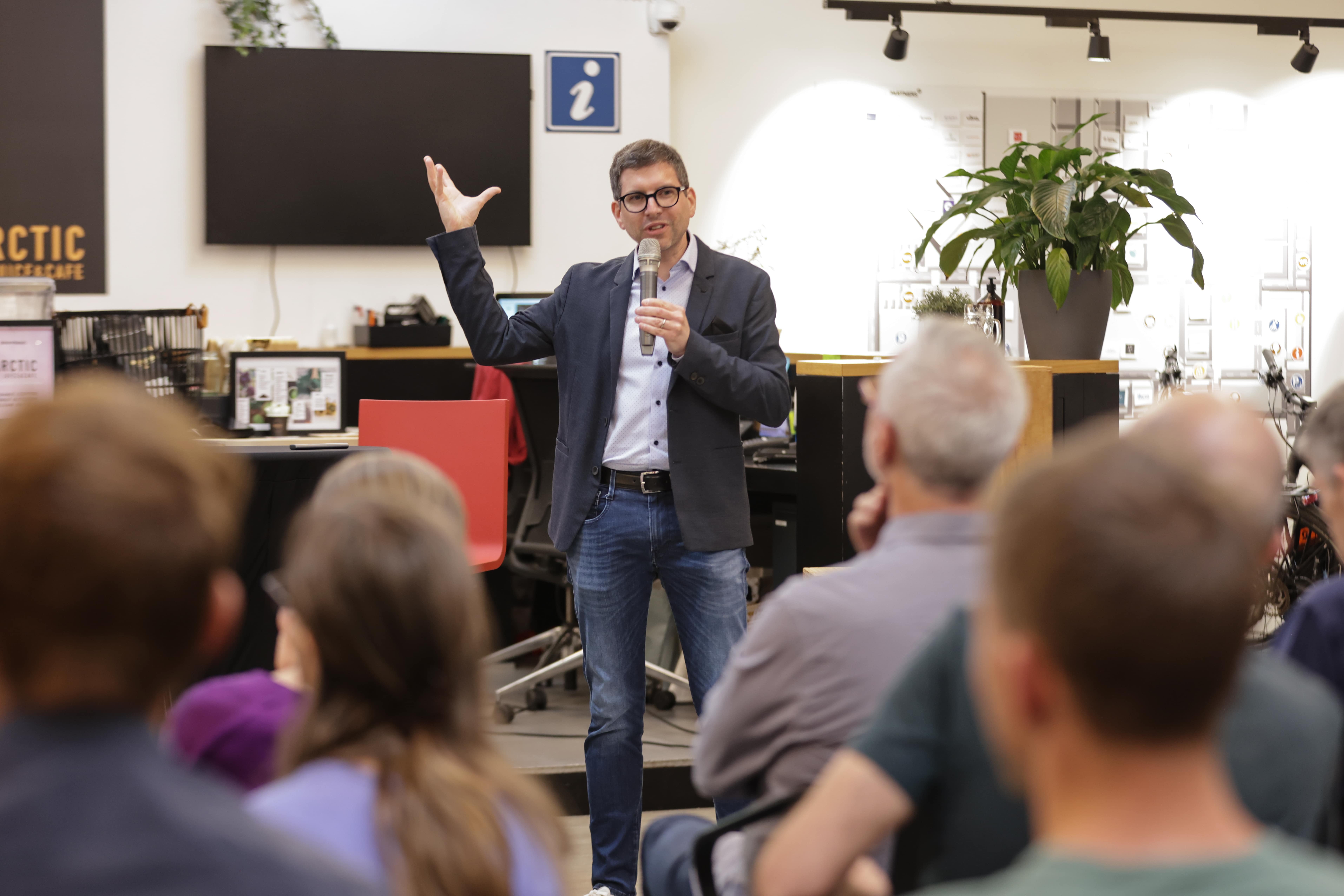
Mounir Krichane, Director, IMI
The evening ended with a round table moderated by the journalist Mehdi Atmani, entitled "Needs & Constraints: what solutions to collaborate more effectively?".
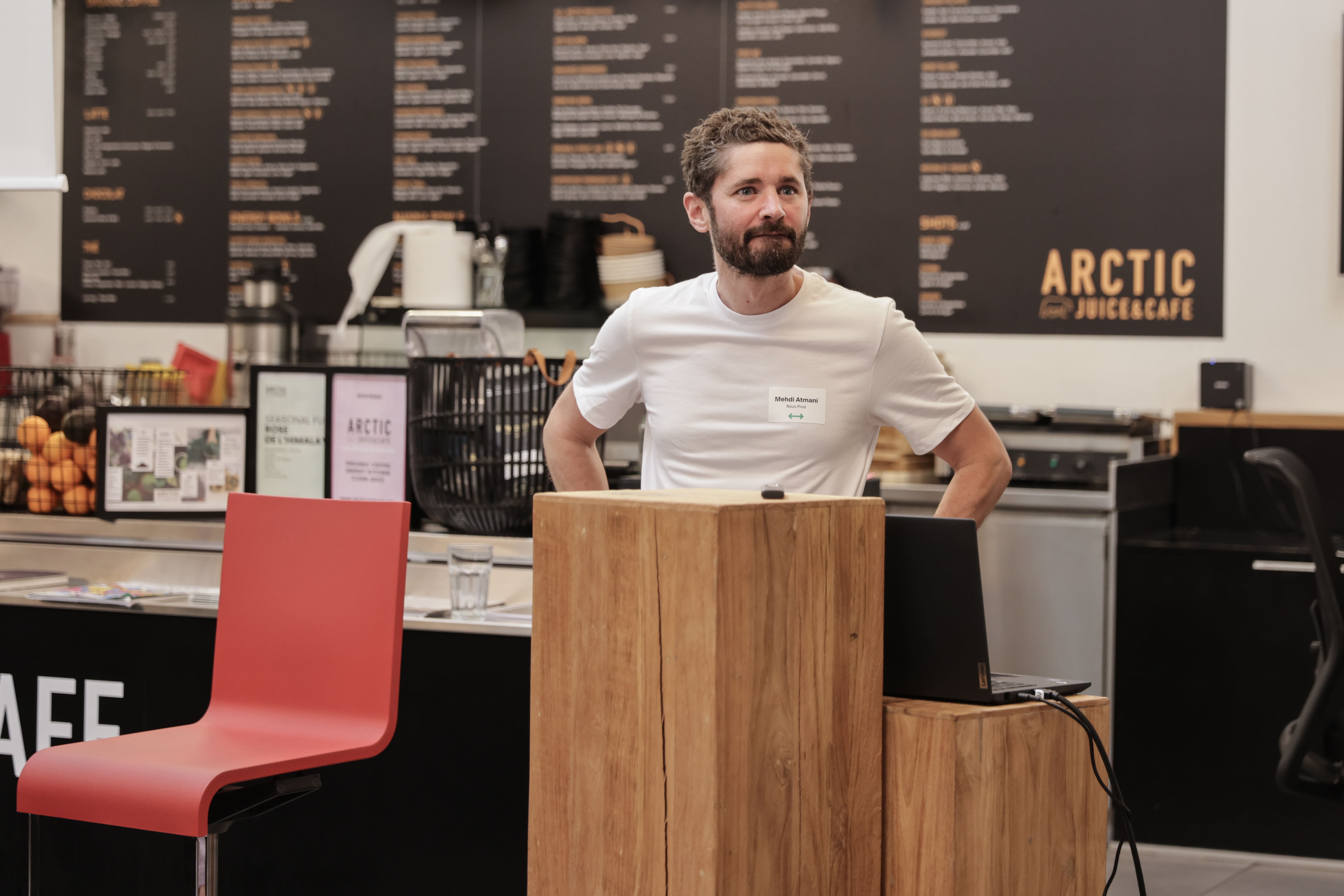
Mehdi Atmani, Journalist
The panelists were Marion Faliu (RTS), Rachel Haübi (Heidi.news), Duc-Quang Nguyen (Le Temps), Oriane Sarrasin (UNIL), Julia Steinberger (UNIL).
Discover the 6 key points that emerged from this exchange in our next article.
Find out more about CLIMACT:
Don't miss our upcoming events and CLIMACT seminar series, read our articles and follow us on Twitter (@ClimactSuisse and @ClimactSwiss) as well as on Linkedin to stay informed of all our news.